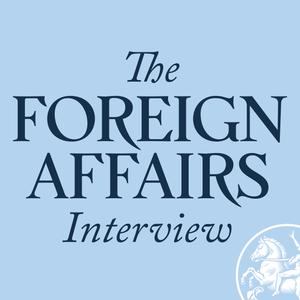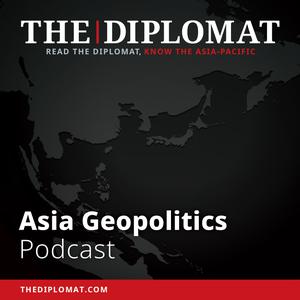
New Books in National Security
Interviews with Scholars of National Security about their New Books
- 50 minutes 4 secondsStuart A. Reid, "The Lumumba Plot: The Secret History of the CIA and a Cold War Assassination" (Knopf, 2023)
Today I talked to Stuart Reid about his new book The Lumumba Plot: The Secret History of the CIA and a Cold War Assassination (Knopf, 2023).
It was supposed to be a moment of great optimism, a cause for jubilation. The Congo was at last being set free from Belgium—one of seventeen countries to gain independence in 1960 from ruling European powers. At the helm as prime minister was charismatic nationalist Patrice Lumumba. Just days after the handover, however, the Congo’s new army mutinied, Belgian forces intervened, and Lumumba turned to the United Nations for help in saving his newborn nation from what the press was already calling “the Congo crisis.” Dag Hammarskjöld, the tidy Swede serving as UN secretary-general, quickly arranged the organization’s biggest peacekeeping mission in history. But chaos was still spreading. Frustrated with the fecklessness of the UN and spurned by the United States, Lumumba then approached the Soviets for help—an appeal that set off alarm bells at the CIA. To forestall the spread of Communism in Africa, the CIA sent word to its station chief in the Congo, Larry Devlin: Lumumba had to go.
Within a year, everything would unravel. The CIA plot to murder Lumumba would fizzle out, but he would be deposed in a CIA-backed coup, transferred to enemy territory in a CIA-approved operation, and shot dead by Congolese assassins. Hammarskjöld, too, would die, in a mysterious plane crash en route to negotiate a cease-fire with the Congo’s rebellious southeast. And a young, ambitious military officer named Joseph Mobutu, who had once sworn fealty to Lumumba, would seize power with U.S. help and misrule the country for more than three decades. For the Congolese people, the events of 1960–61 represented the opening chapter of a long horror story. For the U.S. government, however, they provided a playbook for future interventions.
Andrew O. Pace is a historian of the US in the world who specializes in the moral fog of war. He is currently a DPAA Research Partner Fellow at the University of Southern Mississippi and a co-host of the Diplomatic History Channel on the New Books Network. He is also working on a book about the reversal in US foreign policy from victory at all costs in World War II to peace at any price in the Vietnam War. He can be reached at [email protected] or via andrewopace.com. Andrew is not an employee of DPAA, he supports DPAA through a partnership. The views presented are those of the author and do not necessarily represent the views of DPAA, DoD or its components.
Learn more about your ad choices. Visit megaphone.fm/adchoices
Support our show by becoming a premium member! https://newbooksnetwork.supportingcast.fm/national-security
19 May 2024, 8:00 am - 1 hour 18 minutesMarc McMenamin, "Ireland's Secret War: Dan Bryan, G2 and the Lost Tapes that Reveal The Hunt for Ireland's Nazi Spies" (Gill Books, 2022)
Marc McMenamin's Ireland's Secret War: Dan Bryan, G2 and the Lost Tapes that Reveal The Hunt for Ireland's Nazi Spies (Gill Books, 2022) is a thrilling account of the true extent of Irish-Allied co-operation during World War II. It reveals strategic Nazi intentions for Ireland and the real role of leading government figures of the time, placing Dan Bryan and G2 - the military intelligence branch of the Irish Defence Forces - firmly at the centre of the country's battle against Nazi Germany.
With the help of over thirty-five hours of previously unpublished audio recordings that were held in storage in northern California for over fifty years, McMenamin reveals the extraordinary unheard history of WWII in Ireland, told from the point of view of the main protagonists.
Fascinating and entertaining, Ireland's Secret War reassesses the legacy of the Irish contribution to the Allied war effort through the voices of those involved at the time.
Learn more about your ad choices. Visit megaphone.fm/adchoices
Support our show by becoming a premium member! https://newbooksnetwork.supportingcast.fm/national-security
17 May 2024, 8:00 am - 48 minutes 11 secondsLisa Langdon Koch, "Nuclear Decisions: Changing the Course of Nuclear Weapons Programs" (Oxford UP, 2023)
Throughout the nuclear age, states have taken many different paths toward or away from nuclear weapons. These paths have been difficult to predict and cannot be explained simply by a stable or changing security environment. We can make sense of these paths by examining leaders' nuclear decisions. The political decisions state leaders make to accelerate or reverse progress toward nuclear weapons define each state's course. Whether or not a state ultimately acquires nuclear weapons depends to a large extent on those nuclear decisions.
Nuclear Decisions: Changing the Course of Nuclear Weapons Programs (Oxford University Press, 2023) offers a novel theory of nuclear decision-making that identifies two mechanisms that shape leaders' understandings of the costs and benefits of their nuclear pursuits.
The internal mechanism is the intervention of domestic experts in key scientific and military organizations. If the conditions are right, those experts may be able to influence a leader's nuclear decision-making. The external mechanism emerges from the structure and politics of the international system. This book identifies three different proliferation eras, in which changes to international political and structural conditions have constrained or freed states pursuing nuclear weapons development.
Scholars and practitioners alike will gain new insights from the fascinating case studies of nine states across the three eras. Through this global approach to studying nuclear proliferation, this book pushes back against the conventional wisdom that determined states pursue a straight path to the bomb. Instead, nuclear decisions define a state's nuclear pursuits.
Our guest today is Lisa Langdon Koch, Associate Professor of Government at Claremont McKenna College.
Our host is Eleonora Mattiacci, Assistant Professor of Political Science at Amherst College and author of "Volatile States in International Politics" (Oxford University Press, 2023).
Learn more about your ad choices. Visit megaphone.fm/adchoices
Support our show by becoming a premium member! https://newbooksnetwork.supportingcast.fm/national-security
16 May 2024, 8:00 am - 47 minutes 26 secondsLisa Bhungalia, "Elastic Empire: Refashioning War Through Aid in Palestine" (Stanford UP, 2023)
The United States integrated counterterrorism mandates into its aid flows in the West Bank and Gaza Strip during the early years of the global war on terror. Some two decades later, this securitized model of aid has become normalized across donor intervention in Palestine. Elastic Empire: Refashioning War Through Aid in Palestine (Stanford UP, 2023) traces how foreign aid, on which much of the Palestinian population is dependent, has multiplied the sites and means through which Palestinian life is regulated, surveilled, and policed—this book tells the story of how aid has also become war.
Drawing on extensive research conducted in Palestine, Elastic Empire offers a novel accounting of the US security state. The US war chronicled here is not one of tanks, grenades, and guns, but a quieter one waged through the interlacing of aid and law. It emerges in the infrastructures of daily life—in a greenhouse and library, in the collection of personal information and mapping of land plots, in the halls of municipal councils and in local elections—and indelibly transfigures lives. Situated in a landscape where the lines between humanitarianism and the global war on terror are increasingly blurred, Elastic Empire reveals the shape-shifting nature of contemporary imperial formations, their realignments and reformulations, their haunted sites, and their obscured but intimate forms.
Lisa Bhungalia is Assistant Professor of Geography at Kent State University. Her new position (as of fall 2024) will be Assistant Professor of Geography and International Studies at the University of Wisconsin-Madison.
Learn more about your ad choices. Visit megaphone.fm/adchoices
Support our show by becoming a premium member! https://newbooksnetwork.supportingcast.fm/national-security
15 May 2024, 8:00 am - 30 minutes 47 secondsWhat does Biden’s temporary suspension of offensive arms transfers mean for US-Israeli relations?
Charles Blaha, a former State Department expert on the vetting of U.S. weapons transfers to other countries, helps us understand this important moment in the Israel-Hamas conflict. After an extended period of tension between U.S President Joe Biden and Israeli Prime Minister Benjamin Netanyahu, Biden has decided to freeze some transfers of weapons to Israel, at least temporarily. In his conversation with RBI director John Torpey, Blaha explains United States law and policy governing weapons transfers, which imposes stringent controls to avoid the misuse of U.S. weaponry. Blaha also discusses the role of the protests on campuses and their doubtful effects on changing American or Israeli policy. Finally, the conversation delves into the overall posture of the United States vis-à-vis arms transfers to Israel.
Learn more about your ad choices. Visit megaphone.fm/adchoices
Support our show by becoming a premium member! https://newbooksnetwork.supportingcast.fm/national-security
13 May 2024, 8:00 am - 46 minutes 15 secondsDonald Stoker, "Why America Loses Wars: Limited War and US Strategy from the Korean War to the Present" (Cambridge UP, 2019)
In this provocative challenge to United States policy and strategy, former Professor of Strategy & Policy at the US Naval War College, and author or editor of eleven books, Dr. Donald Stoker argues that America endures endless wars because its leaders no longer know how to think about war in strategic terms and he reveals how ideas on limited war and war in general have evolved against the backdrop of American conflicts in Korea, Vietnam, and Iraq. These ideas, he shows, were and are flawed and have undermined America's ability to understand, wage, and win its wars, and to secure peace afterwards. America's leaders he argues have too often taken the nation to war without understanding what they want or valuing victory, leading to the “forever wars” of today in Afghanistan and Iraq. Why America Loses Wars: Limited War and US Strategy from the Korean War to the Present(Cambridge University Press, 2019) dismantles seventy years of misguided thinking and lays the foundations for a new approach to the wars of tomorrow. Why American Loses War is a must read for policy practitioners, serving soldiers and the lay educated public.
Charles Coutinho has a doctorate in history from New York University. Where he studied with Tony Judt, Stewart Stehlin and McGeorge Bundy. His Ph. D. dissertation was on Anglo-American relations in the run-up to the Suez Crisis of 1956. His area of specialization is 19th and 20th-century European, American diplomatic and political history. He has written recently for the Journal of Intelligence History and Chatham House’s International Affairs. It you have a recent title to suggest for a podcast, please send an e-mail to [email protected].
Learn more about your ad choices. Visit megaphone.fm/adchoices
Support our show by becoming a premium member! https://newbooksnetwork.supportingcast.fm/national-security
5 May 2024, 8:00 am - 53 minutes 40 secondsMichael De Groot, "Disruption: The Global Economic Shocks of the 1970s and the End of the Cold War" (Cornell UP, 2024)
In Disruption: The Global Economic Shocks of the 1970s and the End of the Cold War (Cornell University Press, 2024), Dr. Michael De Groot argues that the global economic upheaval of the 1970s was decisive in ending the Cold War. Both the West and the Soviet bloc struggled with the slowdown of economic growth; chaos in the international monetary system; inflation; shocks in the commodities markets; and the emergence of offshore financial markets. The superpowers had previously disseminated resources to their allies to enhance their own national security, but the disappearance of postwar conditions during the 1970s forced Washington and Moscow to choose between promoting their own economic interests and supporting their partners in Europe and Asia.
Dr. de Groot shows that new unexpected macroeconomic imbalances in global capitalism sustained the West during the following decade. Rather than a creditor nation and net exporter, as it had been during the postwar period, the United States became a net importer of capital and goods during the 1980s that helped fund public spending, stimulated economic activity, and lubricated the private sector. The United States could now live beyond its means and continue waging the Cold War, and its allies benefited from access to the booming US market and the strengthened US military umbrella. As Disruption demonstrates, a new symbiotic economic architecture powered the West, but the Eastern European regimes increasingly became a burden to the Soviet Union. They were drowning in debt, and the Kremlin no longer had the resources to rescue them.
This interview was conducted by Dr. Miranda Melcher whose new book focuses on post-conflict military integration, understanding treaty negotiation and implementation in civil war contexts, with qualitative analysis of the Angolan and Mozambican civil wars.
Learn more about your ad choices. Visit megaphone.fm/adchoices
Support our show by becoming a premium member! https://newbooksnetwork.supportingcast.fm/national-security
28 April 2024, 8:00 am - 34 minutes 45 secondsDavid Petraeus and Andrew Roberts, "Conflict: The Evolution of Warfare From 1945 to the Russian Invasion of Ukraine" (Harper, 2023)
In this deep and incisive study, General David Petraeus, who commanded the US-led coalitions in both Iraq, during the Surge, and Afghanistan and former CIA director, and the prize-winning historian Andrew Roberts, explore over 70 years of conflict, drawing significant lessons and insights from their fresh analysis of the past. Drawing on their different perspectives and areas of expertise, Petraeus and Roberts show how often critical mistakes have been repeated time and again, and the challenge, for statesmen and generals alike, of learning to adapt to various new weapon systems, theories and strategies. Among the conflicts examined are the Arab-Israeli wars, the Korean and Vietnam Wars, the two Gulf Wars, the Balkan wars in the former Yugoslavia, and both the Soviet and Coalition wars in Afghanistan, as well as guerilla conflicts in Africa and South America.
Conflict: The Evolution of Warfare From 1945 to the Russian Invasion of Ukraine (Harper, 2023) culminates with a bracing look at Putin’s disastrous invasion of Ukraine, yet another case study in the tragic results when leaders refuse to learn from history, and an assessment of the nature of future warfare. Filled with sharp insight and the wisdom of experience, Conflict is not only a critical assessment of our recent past, but also an essential primer of modern warfare that provides crucial knowledge for waging battle today as well as for understanding what the decades ahead will bring.
General David Petraeus is a retired United States Army general and widely respected as a leading warrior intellectual. He graduated with distinction from the US Military Academy and earned a Ph.D. from Princeton University. He served for 37 years in the US Army, culminating his time in uniform with 6 consecutive commands as a general officer, 5 of which were in combat, including Command of the Surge in Iraq, US Central Command, and the International Security Assistance Force in Afghanistan. He then served as Director of the CIA. He has held academic appointments at six universities and currently is a Senior Fellow and Lecturer at Yale. He is a prominent commentator on contemporary security issues, military developments, and global affairs. He is currently a Partner in a major investment firm and chairs that firm’s Global Institute.
Sam Canter is a strategic planner, a PhD candidate in Politics and International Relations, and an Army Reserve intelligence officer. His views are his own and do not reflect any institution, organization, or entity with which he is affiliated.
Learn more about your ad choices. Visit megaphone.fm/adchoices
Support our show by becoming a premium member! https://newbooksnetwork.supportingcast.fm/national-security
12 April 2024, 8:00 am - 30 minutes 2 secondsRobert D. Kaplan, "The Loom of Time: Between Empire and Anarchy, from the Mediterranean to China" (Random House, 2023)
The Middle East remains one of the world’s most complicated, thorny—and, uncharitably, unstable—parts of the world, as countless headlines make clear. Internal strife, regional competition and external interventions have been the region’s history for the past several decades.
Robert Kaplan—author, foreign policy thinker, longtime writer on international affairs—has written about what he terms the “Greater Middle East”, a region that spans from the Mediterranean, south to Ethiopia and eastwards to Afghanistan and Pakistan, for decades. These insights are the foundation of his latest book: The Loom of Time: Between Empire and Anarchy, from the Mediterranean to China (Random House, 2023)
In his book, Kaplan criticizes how the U.S. has approached the region—intervention and regime change (including his own mea culpa for his previous support for the 2003 invasion of Iraq, only for Washington to look somewhere else when newly-formed regimes inevitably disappoint.
In this interview, Robert and I talk about his idea of the “Greater Middle East,” some of the experiences that most stood out to him, and his conclusions on how to think about democracy, order, and anarchy in this part of the world.
Robert D. Kaplan is the bestselling author of twenty books on foreign affairs and travel, including Adriatic: A Concert of Civilizations at the End of the Modern Age (Random House: 2022), The Good American: The Epic Life of Bob Gersony, the U.S. Government's Greatest Humanitarian (Random House: 2021), The Revenge of Geography: What the Map Tells Us About Coming Conflicts and the Battle Against Fate (Random House: 2012), Asia's Cauldron: The South China Sea and the End of a Stable Pacific (Random House: 2014), Monsoon: The Indian Ocean and the Future of American Power (Random House: 2010), The Coming Anarchy: Shattering the Dreams of the Post Cold War (Random House: 2000), and Balkan Ghosts: A Journey Through History (St. Martins Press: 1993). He holds the Robert Strausz-Hupé Chair in Geopolitics at the Foreign Policy Research Institute. For three decades he reported on foreign affairs for The Atlantic. He was a member of the Pentagon’s Defense Policy Board and the U.S. Navy’s Executive Panel.
Learn more about your ad choices. Visit megaphone.fm/adchoices
Support our show by becoming a premium member! https://newbooksnetwork.supportingcast.fm/national-security
11 April 2024, 8:00 am - 1 hour 6 minutesJonathan W. Hackett, "Theory of Irregular War" (McFarland, 2024)
From Afghanistan to Angola, Indonesia to Iran, and Colombia to Congo, violent reactions erupt, states collapse, and militaries relentlessly pursue operations doomed to fail. And yet, no useful theory exists to explain this common tragedy. All over the world, people and states clash violently outside their established political systems, as unfulfilled demands of control and productivity bend the modern state to a breaking point.
Jonathan W. Hackett's Theory of Irregular War (McFarland, 2023) lays out how dysfunctional governments disrupt social orders, make territory insecure, and interfere with political-economic institutions. These give rise to a form of organized violence against the state known as irregular war. Research reveals why this frequent phenomenon is so poorly understood among conventional forces in those conflicts and the states who send their children to die in them.
Jonathan W. Hackett is a U.S. Marine with two decades of experience. He has held positions at the Defense Intelligence Agency, National Security Agency, Marine Forces Special Operations Command, and the Marine Corps operating forces prior to teaching full spectrum human intelligence operations and security cooperation in Dam Neck, Virginia.
Learn more about your ad choices. Visit megaphone.fm/adchoices
Support our show by becoming a premium member! https://newbooksnetwork.supportingcast.fm/national-security
7 April 2024, 8:00 am - 1 hour 35 minutesKevin P. Reihle, "The Russian FSB: A Concise History of the Federal Security Service" (Georgetown UP, 2024)
Since its founding in 1995, the FSB, Russia's Federal Security Service, has regained the majority of the domestic security functions of the Soviet-era KGB. Under Vladimir Putin, who served as FSB director just before becoming president, the agency has grown to be one of the most powerful and favored organizations in Russia. The FSB not only conducts internal security but also has primacy in intelligence operations in former Soviet states. Their activities include anti-dissident operations at home and abroad, counterintelligence, counterterrorism, criminal investigations of crimes against the state, and guarding Russia's borders.
In The Russian FSB: A Concise History of the Federal Security Service (Georgetown University Press, 2024), Kevin P. Riehle provides a brief history of the FSB's origins, placed within the context of Russian history, the government's power structure, and Russia's wider culture. He describes how the FSB's mindset and priorities show continuities from the tsarist regimes and the Soviet era. The book's chapters analyze origins, organizational structure, missions, leaders, international partners, and cultural representations such as the FSB in film and television.
Based on both English and Russian sources, this book is a well-researched introduction to understanding the FSB and its central role in Putin's Russia.
Kevin P. Riehle is lecturer in intelligence and security studies at Brunel University London. He also spent over 30 years in the US government as a counterintelligence analyst. He is the author of two previous books, including Soviet Defectors: Revelations of Renegade Intelligence Officers, 1924-1954 (2020).
Learn more about your ad choices. Visit megaphone.fm/adchoices
Support our show by becoming a premium member! https://newbooksnetwork.supportingcast.fm/national-security
26 March 2024, 8:00 am - More Episodes? Get the App
Your feedback is valuable to us. Should you encounter any bugs, glitches, lack of functionality or other problems, please email us on [email protected] or join Moon.FM Telegram Group where you can talk directly to the dev team who are happy to answer any queries.
 Foreign Policy Live
Foreign Policy Live
 The President’s Inbox
The President’s Inbox
 ChinaTalk
ChinaTalk
 The Foreign Affairs Interview
The Foreign Affairs Interview
 The Truth of the Matter
The Truth of the Matter
 Asia Geopolitics
Asia Geopolitics